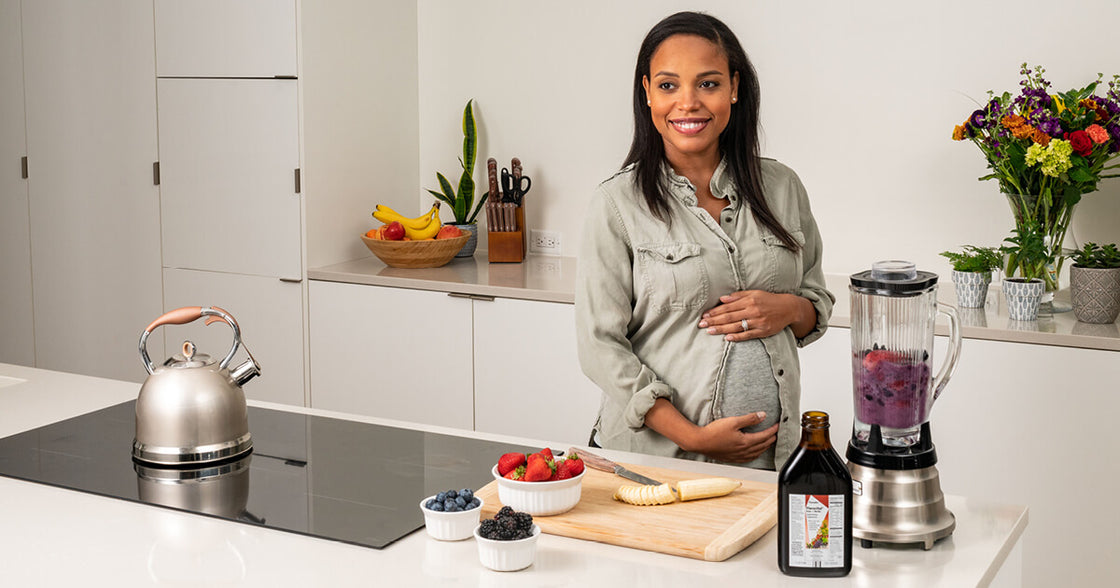Congrats on the new arrival! Whether you’re expecting a baby or have welcomed a child recently, you’ve probably already heard (a lot) of information about eating a healthy diet, taking a prenatal vitamin, and caring for yourself and your developing baby or newborn.
Your doctor may have told you about the importance of iron during pregnancy and postpartum, but if not, or if you’re considering starting a family and curious about what you need to know, here’s more information about the important relationship between iron, pregnancy, and postpartum.
Iron and pregnancy
When you’re pregnant, your body is going through a million changes a minute — or at least that’s what it feels like. As baby grows, your body makes more hemoglobin to create more red blood cells to help bring extra oxygen to them as they develop, which means you may require more iron in your diet or via a supplement. If you’re not getting the iron you need, you may be at risk for iron deficiency or anemia, which is why many pregnant women take iron supplements during pregnancy or look for a multivitamin with an adequate amount of iron. Typically, the average pregnant woman should consume about 30 mg of iron per day, though you may need more if you’re having twins or multiples or have historically struggled with low iron.
Iron and postpartum
Once baby has made its arrival into the world, you may want to consider continuing your iron supplementation for several weeks or months after birth. (Of course, this should be a conversation you have with your healthcare provider.)
Some women may experience postpartum iron deficiency, particularly if you lost a lot of blood during delivery or gave birth to several babies at once.
How to make sure you’re getting enough iron
- Take an iron supplement like Floradix® Iron + Herbs Liquid Supplement or Floravital® Iron + Herbs Liquid Supplement if you’re vegan, as directed by your physician. Floradix and Floravital are easily absorbed, gentle-to-digest, and non-constipating plant based liquid extracts.
- Take a prenatal vitamin with adequate amounts of iron, as directed by your physician.
- Take your supplement with vitamin C, which can help increase absorption.
- Eat lots of iron-rich foods, including red meat and poultry, dark leafy greens, beans, eggs, and enriched cereals and grains.
- Know the signs of low iron and what to watch out for.
*This statement has not been evaluated by the Food & Drug Administration. This product is not intended to diagnose, treat, cure or prevent any disease.
